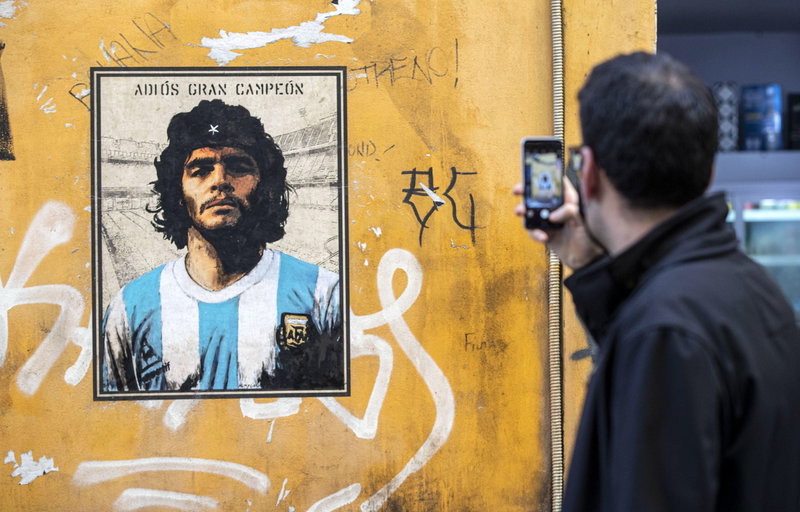THE CULTURAL TIGHTROPE
A troubled genius
Diego Maradona, one of football’s icons and a man who it can be truly said lived life to the full, died on November 25. As a player, among other clubs he graced Barcelona (1982-84) and Napoli (1984-91) with his footballing skills, before mostly unremarkable spells as coach of several clubs and even the Argentine national team. He had a Church named after him in his native land, by which I do not mean a physical building, but a religious movement. But that was in Argentina. In England, the name Maradona used to instil great rage in people, and I admit I was one of them. Why? Because of the “Hand of God”, of course. The only way that particular footballing injustice could have been made any worse would have been to somehow associate it with the work of God. And that’s exactly what he did. That made my and many of my compatriots’ blood boil at the time, and for years afterwards. But that was long ago. Things have changed since then, and this legend of the game leaves behind an unparallelled legacy.
There is no question that he was a footballing genius, and although most fans still debate whether he or Pele was better, it is revealing to know that many put him above a player whose brilliance we are witnessing in this era: Lionel Messi. That should tell the modern generation just how good Maradona was. His stats are another clue: he scored 38 goals in 58 appearances with Barça, while aside from leading Argentina to World Cup success, he scored 34 goals in 91 appearances at all levels for his country. His greatest feat, however, was surely to help Napoli win the Italian Serie A not once but twice, including a league and cup double, and then a UEFA Cup. Locals say that his time in Naples completely changed the morale of a city where he is still revered to this day.
Hailing from humble beginnings, Maradona struggled with the fame that engulfed him, and turned to drugs to deal with his demons and the emotional pressures of just being who he was. Drugs of course lead to social and health issues, and Maradona’s are well-documented. It is far more appropriate here to pay testament to just what he gave to the world. He played football like no one else, bringing joy to millions, and as a football-loving Englishman, despite the initial negative emotions he inspired in me as a young man, I came to realise that the bigger picture was what he was able to do on a football field... his dance around half the England team in 1986 was an expression of genius that far outweighed his deceit in that game. Indeed, the act of “cunning” inspired by God was his response to another form of cheating that he regularly faced – opposition players trying to kick him off the pitch. And England certainly did that in Mexico, it’s just that the little man would get back up, dust himself down, and do what he did best. England’s efforts to stop him were an admission that they just could not live with him on a footballing level.
There are also many stories of Maradona’s great humanity and compassion, especially with children... this was a man who knew what it was like to feel hurt and pain and the need for other human beings’ support to overcome it. Above all else, I believe he represented what a human being can achieve in the face of adversity. Now his turbulent life is over, I’m sure he will finally be at peace.


